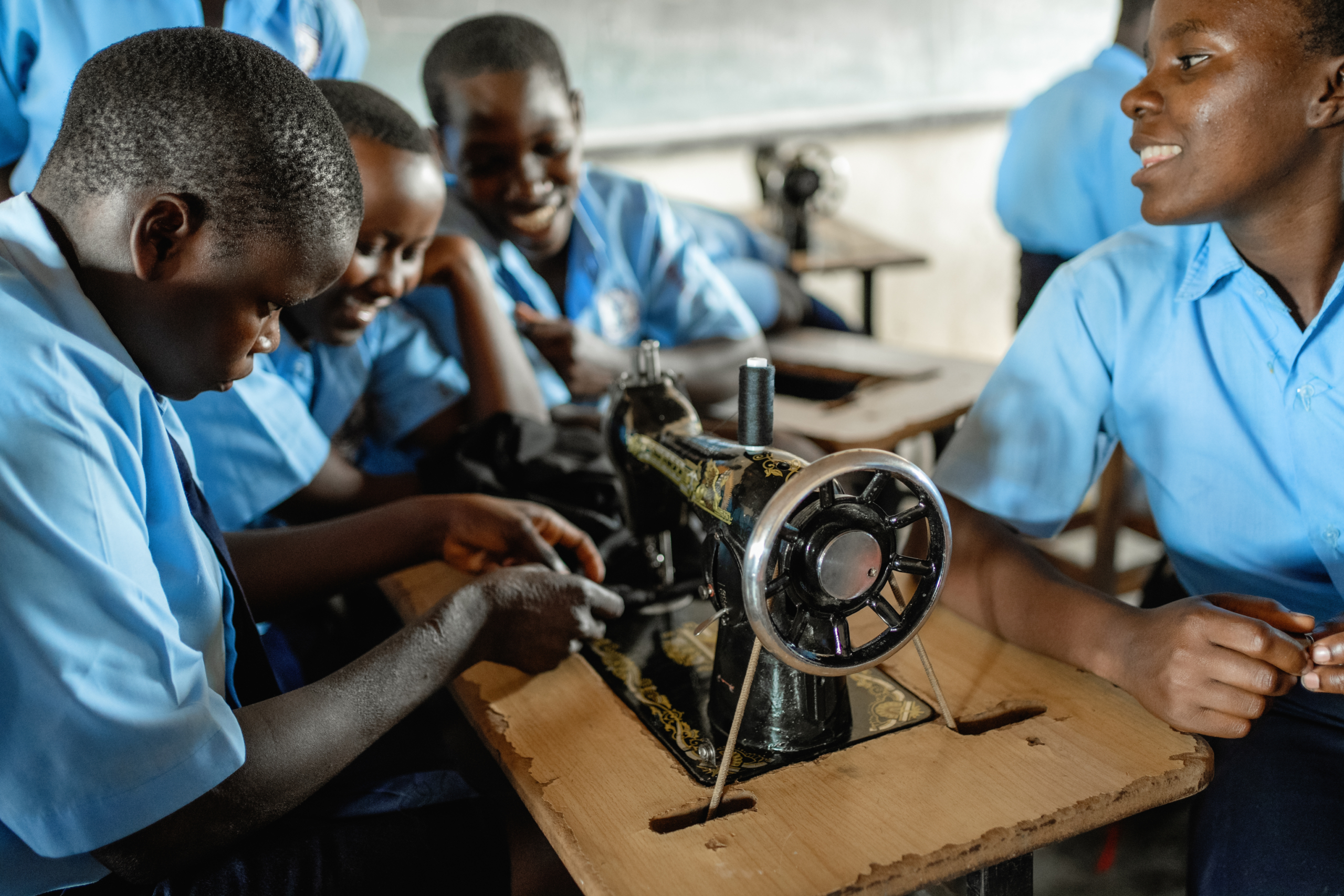Vocational training programs, an often underutilized yet critical component of education, hold immense potential in transforming lives and economic landscapes in sub-Saharan African countries like Uganda. This form of training, which emphasizes practical skills and hands-on experience, is particularly relevant in regions where traditional academic education may not align seamlessly with the demands of the local job market.
In Uganda, vocational skills training offers young people meaningful job opportunities in an economy where they might otherwise be forced into informal (and unsafe or unreliable) work, especially given the significant barriers students face in getting a college education. Getting vocational training alongside a formal secondary education offers students even more options: they can enter the workforce right away, which leaves open the possibility of being able to pay for college later.
Vocational Careers Offer a Stable and Lucrative Source of Income
Because Uganda’s economy is primarily based on agriculture and industry, some of the most readily available career opportunities are in vocational jobs like carpentry, welding, plumbing, electrical installation, tailoring, hairdressing, and masonry. Both vocational training and firm-based training significantly increase the likelihood of wage employment. Those who completed vocational training saw their wages rise by 52%, and the overall earnings for these workers were 40% higher than those who did not receive trade skills training.
Vocational Training Is Practical and Accessible
Vocational courses are often more affordable than college tuition, making them accessible to a broader range of students, including those from lower-income backgrounds.
Trade skills training also takes less time to complete, enabling students to enter the workforce more quickly. This aspect is crucial for those who need to start earning an income promptly. In Uganda, a National Certificate program can be completed in two years, a substantially shorter timeframe than traditional degree programs.
Vocational school has additionally helped to foster inclusivity and break down barriers to employment for workers with disabilities. This not only empowers more young Ugandans, but increases overall workforce participation and productivity, which ultimately strengthens the national economy as a whole.
You can help Ugandan students get the training they need to enter stable, lucrative jobs and support their families by donating to organizations that offer vocational training programs.
Support Vocational Training for Ugandan Students With Simone’s Kids
Simone’s Kids in Nakaseke, Uganda, provides high-quality primary and secondary education and meets basic needs for children in order to help them break the cycle of poverty. Besides academic learning, these include access to healthy foods, clean water, safety measures, after-school sports and other activities, and an on-site medical clinic.
Our God’s Hope School also offers valuable vocational training in tailoring, hairdressing, welding, brick and cement work, and mechanics. Your donations help us prepare high school students for stable, lucrative employment.
You can maximize your impact with recurring donations to Simone’s Kids by joining The Village. The Village is a passionate group of donors committed to bettering the lives of children in Uganda by making monthly donations that help to provide better meals, more teachers, more activities, and even post-graduation services. Give today!



Leave a Reply
Want to join the discussion?Feel free to contribute!